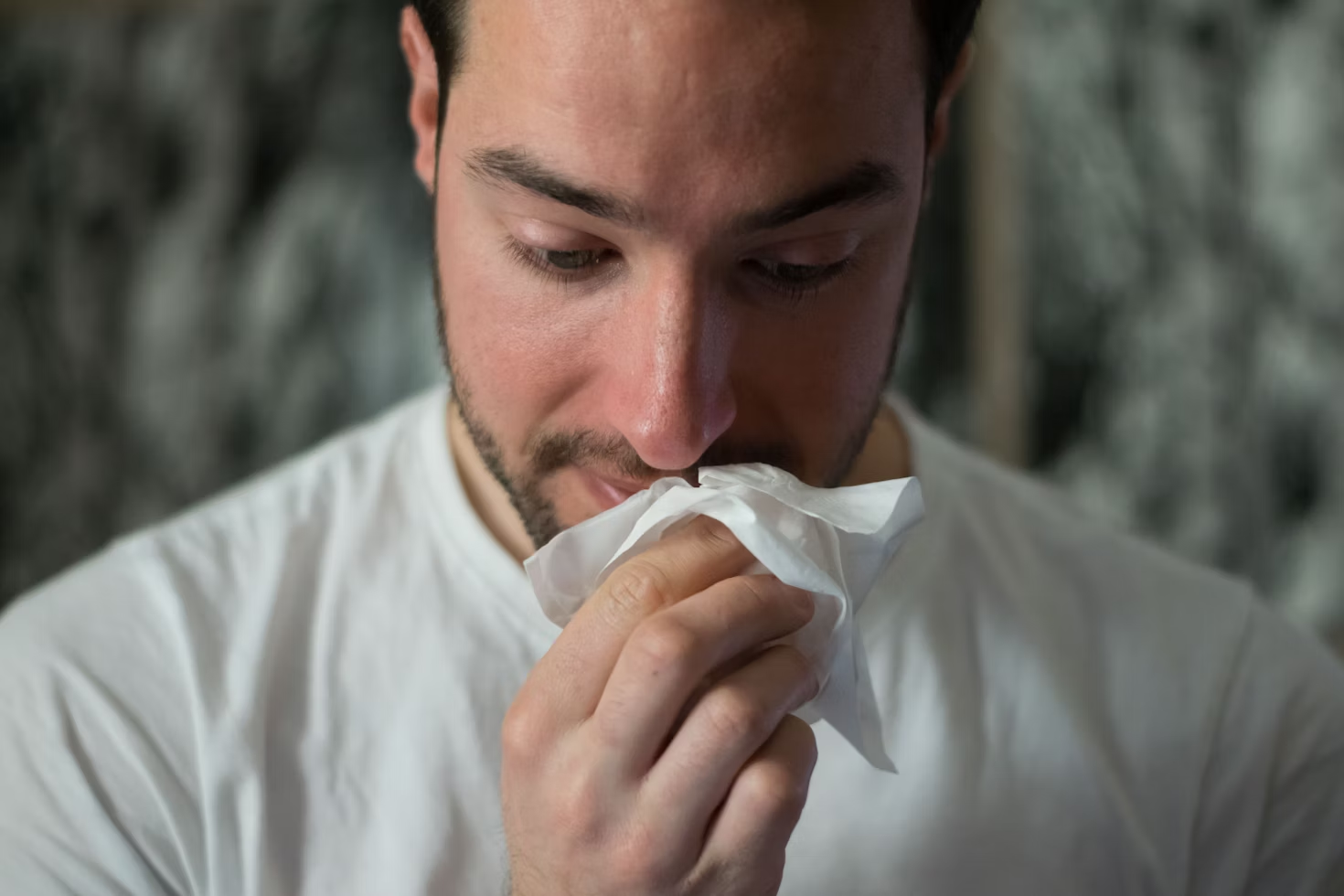What is Allergic Rhinitis?
Allergic rhinitis, commonly known as hay fever, is more than just a runny nose and itchy eyes. It’s an allergic reaction to airborne particles, like pollen, dust, or pet dander. Imagine your immune system acting like an overprotective bodyguard, attacking harmless invaders and causing a ruckus in your nasal passages. Not fun, right?
Understanding the Symptoms
Sneezing and Runny Nose
Do you find yourself sneezing uncontrollably and reaching for tissues constantly? This is your body’s way of trying to expel the allergens.
Itchy Eyes and Throat
Ever felt like you wanted to scratch your eyes or throat? This uncomfortable sensation is another sign of allergic rhinitis.
Nasal Congestion
Feeling like you can’t breathe through your nose? Nasal congestion can make you feel like you’ve got a perpetual cold.
Identifying Your Triggers
Common Allergens
Pollen, dust mites, pet dander, and mold spores are the usual suspects. Knowing what triggers your symptoms is half the battle.
Keeping a Symptom Diary
Keeping track of when and where your symptoms flare up can help you pinpoint your triggers. Think of it as detective work for your health.
Natural Remedies to Try at Home
Saline Nasal Spray
Using a saline nasal spray can help rinse away allergens from your nasal passages. It’s like giving your nose a refreshing shower.
Steam Inhalation
Inhaling steam can soothe your nasal passages and help reduce congestion. Add a few drops of eucalyptus oil for an extra kick.
Local Honey
Some people swear by consuming local honey to build up immunity to local pollen. It’s a sweet and natural approach!
Over-the-Counter Solutions
Antihistamines
Antihistamines can block the histamine response in your body, reducing symptoms. Think of them as the bouncers keeping the allergens at bay.
Decongestants
Decongestants can relieve nasal congestion and help you breathe easier. But be cautious with prolonged use, as they can lead to rebound congestion.
Nasal Sprays
Nasal corticosteroids can reduce inflammation in your nasal passages, providing relief. They’re like mini fire extinguishers for your nose.
Prescription Treatments
Allergy Shots
Allergy shots, or immunotherapy, gradually desensitize your immune system to allergens. It’s a long-term solution that can provide significant relief.
Prescription Medications
Your doctor may prescribe stronger antihistamines or corticosteroids if over-the-counter options aren’t cutting it.
Lifestyle Changes for Lasting Relief
Keeping Your Home Allergen-Free
Dust regularly, use air purifiers, and keep windows closed during high pollen seasons. Your home should be your sanctuary, not an allergen haven.
Changing Your Clothes and Showering
After spending time outside, changing your clothes and showering can help remove allergens from your skin and hair.
Avoiding Outdoor Activities During High Pollen Counts
Check local pollen forecasts and plan outdoor activities when counts are lower. Your nose will thank you.
Diet and Allergic Rhinitis
Foods That Help
Incorporate foods rich in omega-3 fatty acids, like fish and flaxseed, to help reduce inflammation. Think of them as your body’s natural anti-inflammatory agents.
Foods to Avoid
Some foods can exacerbate symptoms. Dairy products, for instance, can thicken mucus. Keeping a food diary can help you identify culprits.
The Role of Exercise
Staying Active
Regular exercise can improve your overall immune response and help manage symptoms. Even a brisk walk can make a difference.
Yoga and Breathing Exercises
Practices like yoga and pranayama can help you manage stress and improve your breathing. It’s like a workout for your respiratory system.
Alternative Therapies
Acupuncture
Some people find relief through acupuncture, which can help balance your body’s energy. It’s worth a try if conventional treatments aren’t enough.
Herbal Remedies
Herbs like butterbur and stinging nettle have been shown to reduce symptoms in some people. Always consult with a healthcare provider before starting any new supplement.
When to See a Doctor
Persistent Symptoms
If your symptoms persist despite trying various remedies, it’s time to consult a healthcare provider. They can provide tailored advice and treatments.
Complications
Untreated allergic rhinitis can lead to sinus infections or other complications. Don’t ignore it if things seem to be getting worse.
Conclusion
Allergic rhinitis can be a real nuisance, but with the right approach, you can manage and even cure it. From natural remedies to lifestyle changes and medical treatments, there are plenty of options to explore. Remember, what works for one person might not work for another, so it’s essential to find what suits you best.
FAQs
1. Can allergic rhinitis be cured permanently?
While there’s no guaranteed permanent cure, many people find long-term relief through a combination of treatments, including immunotherapy and lifestyle changes.
2. Are natural remedies effective for allergic rhinitis?
Yes, many natural remedies can provide relief, especially when used in conjunction with other treatments. It’s always best to consult with a healthcare provider before starting any new remedy.
3. How do I know if I have allergic rhinitis or a common cold?
Allergic rhinitis symptoms persist longer than a common cold and are often triggered by specific allergens. A healthcare provider can help you determine the cause of your symptoms.
4. Is it safe to use nasal sprays long-term?
Some nasal sprays are safe for long-term use, while others, like decongestant sprays, should be used sparingly. Always follow the advice of your healthcare provider.
5. Can diet changes really help with allergic rhinitis?
Yes, certain foods can help reduce inflammation and support your immune system, potentially easing symptoms. Keeping track of your diet and its impact on your symptoms can be very helpful.

